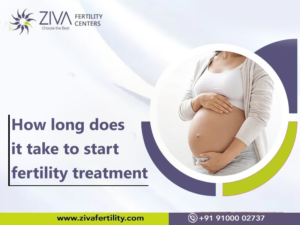Having a baby is a beautiful dream for a couple. Every parent wants a happy and healthy baby. So naturally, couples should know what will affect their fertility and the health of their baby. The lifelong health of your baby depends on your health before pregnancy. In this blog by ZIVA fertility experts, we will discuss the dos and don’ts when trying for a baby.
However, one cannot predict when you will conceive, and you won’t know you’re pregnant for the first few weeks. So, some of these changes should be started as soon as you start planning, meaning stopping the usage of contraception.
Adapting to these changes before conception will make it easier to follow the same guidelines when you are pregnant. Otherwise, if you make all these changes after conception, it can be overwhelming since pregnancy itself will bring in a lot of changes of its own.

Comprehensive list of Do’s and Don’ts for couples to get pregnant
- Start taking folic acid as soon as you start trying; it needs time to build up in your body
- Have a healthy balanced diet for your fertility as well as affecting your baby’s future health
- Cut down on caffeine if you drink in excess
- Maintain a healthy weight if you are overweight or underweight.
- Lead an active life – this has been shown to improve fertility and will make your pregnancy and baby healthier
- Start with a cervical screening test if you haven’t had one in the last three years
- Check that all your vaccinations are up to date.
- Don’t start new medication or stop existing medications without consulting your healthcare professional
- If there is a suspicion, get yourself or your partner tested for STIs
Detailed list of Do’s and Don’ts for working women during pregnancy
Get help to stop smoking
Smoking affects the ability to get pregnant both in men and women. So, if you both stop smoking, then it will help improve your chances of conceiving. Apart from affecting your fertility, smoking damages the DNA of your baby. Many serious pregnancy-related complications can be avoided if you stop smoking. Please do not shy away from seeking external help if it helps.
Start with folic acid now
Folic acid is essential to provide maximum protection for your baby against neural tube defects. It takes time for the folic acid to build in the body, so start taking it even before conception. In couples with good fertility, they could conceive within one month of trying, so start taking folic acid two months before you stop contraception. After conception, our experts at ZIVA fertility clinics will guide you on the vitamins and folic acid intake throughout pregnancy.
Eat well
A well-balanced diet can improve your fertility, so include wholegrain, unsaturated fats and vegetable proteins such as lentils and beans. Your diet before the pregnancy will also affect your baby’s development in the womb and their health in the future. A healthy diet during pregnancy can continue to be your healthy diet for life. We at ZIVA fertility clinics will assess if you have a condition that requires specific diets or nutritional requirements, such as diabetes.
Try to maintain a healthy weight.
Your BMI is a measuring index that uses your height and weight and is an indicator of your healthy weight. Before conceiving, one should maintain a BMI within the range of 18.5 and 24.9.
Being overweight: A higher BMI can reduce your fertility and increase the risk of complications in pregnancy. Overweight men also contribute to infertility. If the BMI is above 30, one might think it is an impossible task to reach the healthy range. Don’t lose heart, and keep trying since even if the BMI reduces by a few points down the scale,e, it can make a big difference. There is a lot of professional and medical support available if you need it.
Being underweight: If being overweight is a problem, then being in the underweight range of 18.5 or less BMI also affects your fertility and causes health problems during pregnancy. But one should gain weight gradually and with a healthy diet. Please do not resort to junk food and drinks to gain weight since they bring problems of their own. It’s best to consult a general physician and a good dietician for this case.
Have a cervical screening test
For a woman between the ages of 25 and 49, please get a cervical screening test every three years. Testing before pregnancy is best because pregnancy can make the results of your test harder to interpret.
Check for your sexual health.
Sexually transmitted infections pose a high risk for pregnancy, so if there is any reason to think you or your reproductive partner may have an STI, you both must get tested. Tests can be done in a sexual health clinic by your doctor.
Be open about any pre-existing conditions or any medications you are taking.
If you have any serious medical complications, then consult your doctor before planning a baby, and let them know of your long-term medication, especially for epilepsy, diabetes, asthma or mental health conditions.
Detailed list of Don’ts for couples to get pregnant
Don’t take excess caffeine
Research shows that excess caffeine while you are trying can increase the risk of miscarriage and has also been shown to be harmful to the developing baby. While there is no definitive guideline on how much caffeine is best for you and your baby, it is best to use it less and if you quit totally.
Don’t be lazy.
Staying active is good not only for the body but also for the mind. Do moderate exercise before and after you conceive. But one should be careful of the household chores or the level of exercise that you do. Stay in moderation, and it is best to consult your doctor before taking up any exercise regime.
Don’t drink excess alcohol.
Binge drinking means regular drinking of alcohol above recommended levels. Excessive drinking during pregnancy increases the risk of complications especially during the first three months of pregnancy, as this is when the baby’s brain is developing. Since you cannot know when you are pregnant, the safest thing to do is not drink any alcohol at all if you’re actively trying for a baby. If it is difficult to stop drinking alcohol, there are treatment services available if you need support.
Don’t take non-prescription or recreational drugs.
Non-prescription and recreational drugs contribute to fertility problems for men and women.
We at ZIVA Fertility Clinics take extra care of the pre-pregnancy do’s and don’ts. So always feel free to consult us if you have any more doubts or need professional help.
We at ZIVA are pioneers in the field of IVF treatments. For more information, please visit our website https://zivafertility.com/ or contact us at +91-9100002737 or +91-9392834024.
















